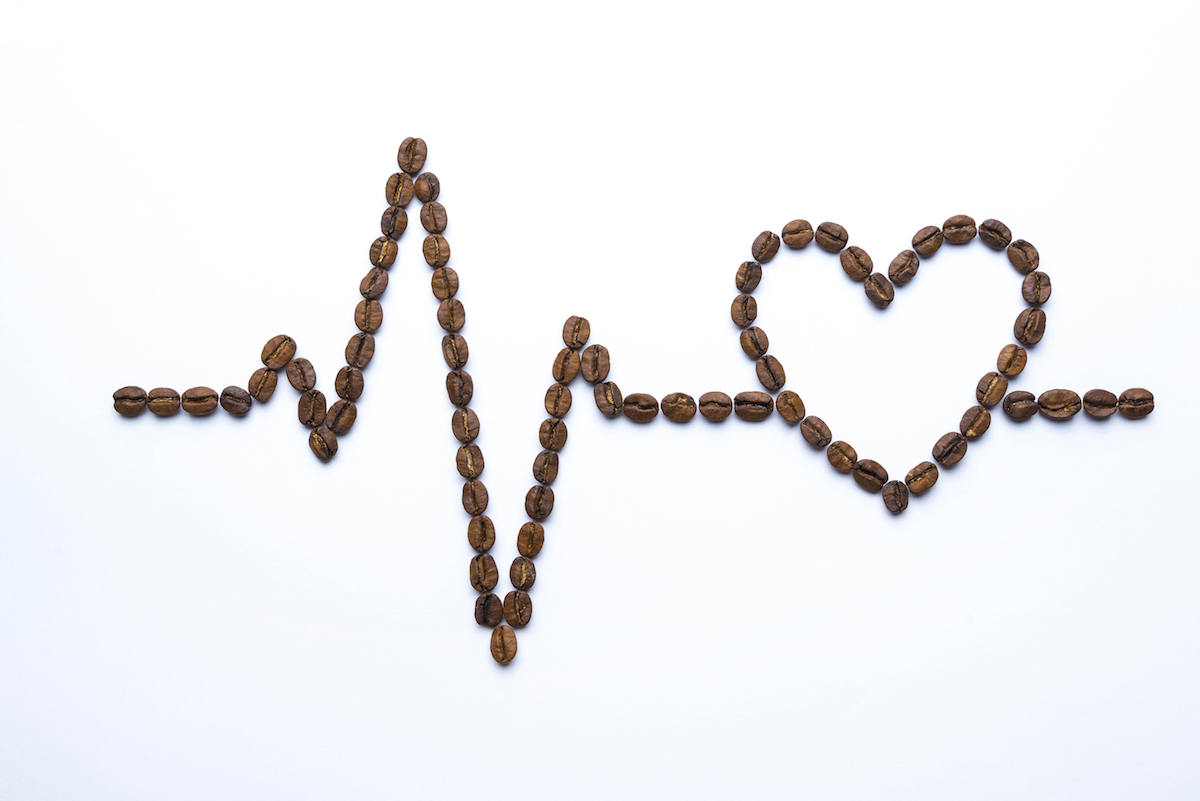
Research challenges age-old assumptions about caffeine.
If you’re a coffee drinker, you may be concerned about how your daily cup (or two) of joe is affecting your heart health.
Because caffeine is a stimulant, you might think it puts stress on your ticker, especially if you are prone to irregular heart rhythms called arrhythmias. For a long time, doctors didn’t think coffee was heart-healthy, either. But times (and research) are changing.
Caffeine’s impact on arrhythmias
Some research has looked specifically at the effects of caffeine on irregular heart rhythms. One study found that the instances of arrhythmia were no different among caffeine consumers (specifically coffee, tea and chocolate) and those who didn’t consume caffeine.
In a small Brazilian study, participants with heart problems were randomly assigned to drink a caffeinated or decaffeinated drink, then assessed with electrocardiograms and stress tests. Researchers found no difference in irregular heart rhythms between the two groups.
So what’s the bottom line on coffee’s role in heart health, specifically irregular heart rhythms?
“The available research suggests that caffeine in doses typically consumed, about 400 mg a day or about five cups of coffee, does not provoke arrhythmias,” says Helga Van Herle, MD, a cardiologist at Keck Medicine of USC and associate professor of clinical medicine at the Keck School of Medicine of USC.
Coffee’s impact on your overall heart health
Recent research, including a study from the University of Southern California, has found an association between coffee drinking and longevity. Studies have also shown less cardiovascular disease among people who drink coffee, making coffee actually heart-healthy.
But what about caffeine’s role in all this? While many studies find benefits in coffee, many of those benefits occurred whether the coffee was caffeinated or decaffeinated. It’s possible that there could be something else in coffee that boosts health. Or, it could be that there is another confounding factor affecting the results — after all, these studies have only proved a link, not a cause and effect.
Research presented at an American Heart Association conference, though, provided a mechanism for how caffeine itself might improve heart health. Drinking a cup of coffee significantly improved blood flow among small blood vessels, which may keep your heart from having to work too hard.
See how caffeine makes you feel
Although the research doesn’t currently support a link between caffeine and arrhythmias, if you find caffeine seems to worsen the condition, consider cutting down.
“There are patients who may be sensitive to caffeine and note the onset of palpitations or worsening palpitations with low or any caffeine intake,” Van Herle says. “I usually advise my patients with palpitations that are worsened with caffeine to cut down if they can and reassure others with arrhythmias, that are not affected by caffeine, that they can continue to use it in moderate amounts.”
But there might be one exception to the caffeine rule for heart health. “In general I do advise my patients to stay away from ‘high energy’ drinks that contain very high caffeine content,” Van Herle adds.
Irregular heartbeat, which can feel like a fluttering or racing heart, is a cause for concern because it may mean your heart isn’t working properly. It can be a sign of heart disease, including coronary artery disease or cardiomyopathy (problems with the heart muscle). But, according to the American Heart Association, most arrhythmias are actually harmless. Only a doctor can tell for sure, so report an arrhythmia to your health care professional if you experience it.
Topics
